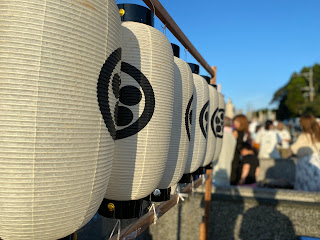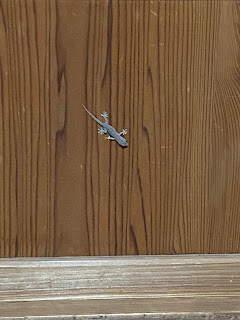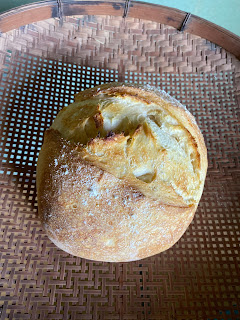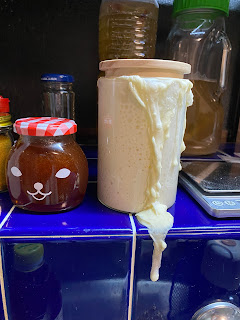Having moved to Goto, it's been two months since I arrived on August 12th.
I experienced Obon for the first time in Yamashita, Tomie Town.. (is an annual Japanese holiday that commemorates and remembers deceased ancestors)
Normally, it would be the time for visiting my family's ancestral grave, but having spent 23 years in Canada and not having a family home anymore, I couldn't go back every year. So, instead, I made sure to pay my respects to my ancestors daily.
Therefore, rather than visiting the grave just because it was "Obon," I wanted to cherish the experiences I could have now. With that sentiment, I deliberately chose not to return to Nagasaki where my family used to live and stayed in Tomie Town.
Obon in Goto is a bustling time with people returning to their hometowns and tourists. Local shops, restaurants, cafes, and such are all very busy. It's a good thing! 😀
I'm helping out at a nearby store, and they're really busy making bento boxes from early morning.
My task was making rolled sushi. Rolling sushi endlessly for hours...
The ladies who are over 20 years older than me have so much energy, seriously! 💦
"Yodoretaro?"
"Kuwashikane."
I'm not familiar with these dialect words they're throwing around, so I ask what they mean. And then, the ladies happily explain the meanings of the dialect expressions.
"Yodoretaro?" means "Aren't you fed up already?"
"Kuwashikane." means "You're doing a good job."
You must be tired of making rolls all the time. But you're rolling them so well.
And then, one of the ladies gladly teaches me a rather crude dialect phrase:
"Yodore hakkabutta."
This expression, which I've never heard before, apparently means
"To be so tired that you feel like throwing up" (laughs).
Yes, after rolling sushi for hours, I'm indeed "yodore hakkabutta", lol.
And then, the landlady enthusiastically invites me:
"What are you up to tonight? Will you come to see Tomie's Obon? We'll all go to the graves together. You'll see Onneonde too. Shall we have dinner together? While you're here in Yamashita, why don't you have various experiences?"
This landlady jumped straight out of a manga from the early Showa era. She's cheerful, kind, and strong-willed.
"If you go straight down "that street", you'll see the graves. Go there first, and then come to my house."
I don't know "that street", I don't know where their graves are, and I don't even know where she lives. But I trust her words and think,
"If I go straight down that road, maybe it's here." So, I drive around with my car and...
"I found them!"
The landlady's directions were really accurate (laughs).
So, I light incense and took a seat as instructed.
It's not for fireworks, it's not for chatting; for about an hour, we're waiting for something.
Among their relatives, my son and I feel a bit out of place. Still, we wonder what this quiet atmosphere is about, and hesitantly I ask, "Are you waiting for someone?"

"You can't leave until the candle inside the lantern goes out."
Ah, I see!
To properly welcome the souls of the ancestors who have returned for Obon, they wait until the candle inside the lantern extinguishes.
And then, I was able to watch the traditional dance called "Onneonde." In the past, it was danced by farmers after sowing seeds as a wish for a good harvest, meaning "Come out." But now, it's danced for those who recently passed away during the Obon season.

I hope these old traditions like this continue to exist. 🙏
After all, I've had a wonderful experience at my first Obon season in Goto.















